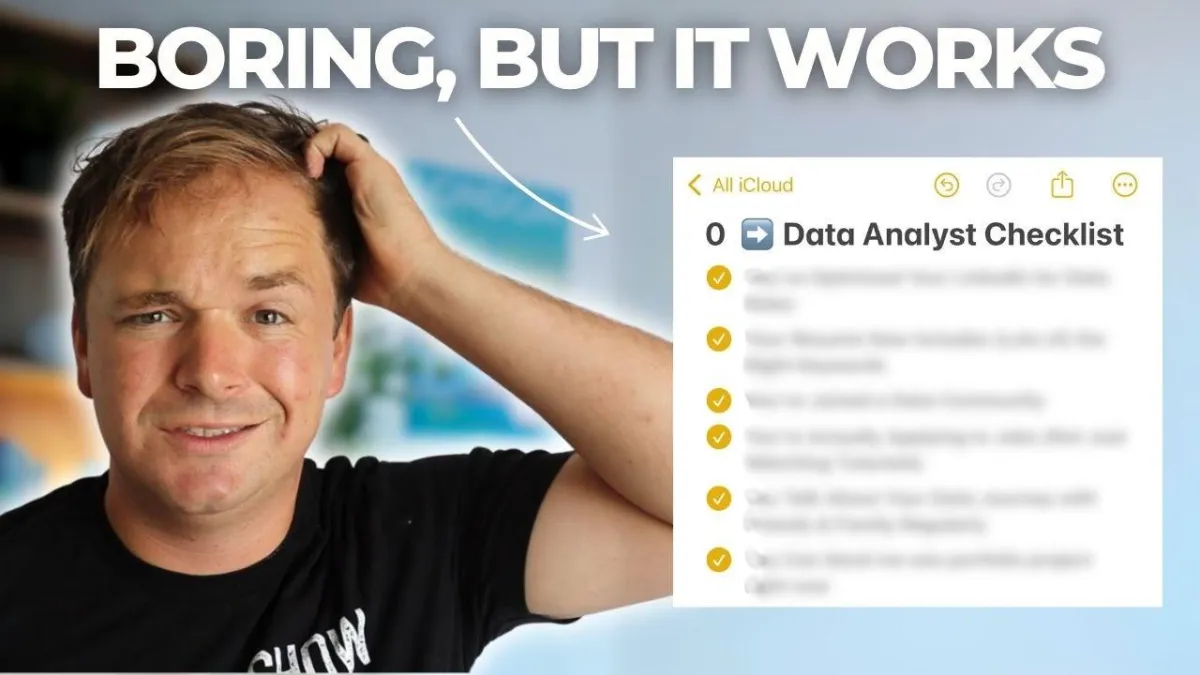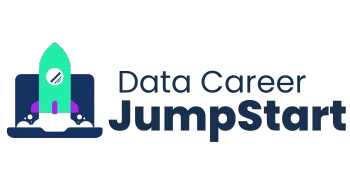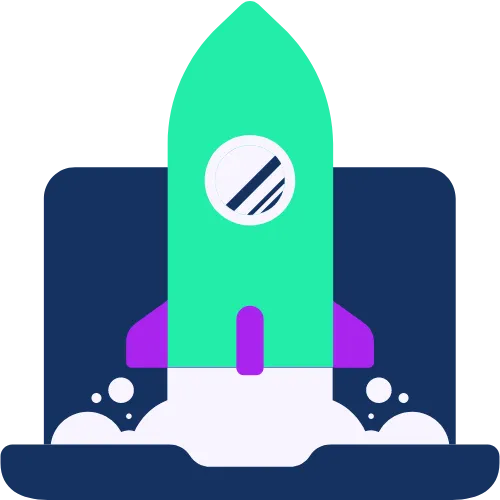
🔍 13 Signs You’re on the Right Track to Landing Your First Data Job
Most analysts feel like they're behind, with good reason. Every tutorial makes you feel more inadequate. Every job posting seems impossibly out of reach. Every LinkedIn post from successful professionals makes you question if you'll ever make it.
Here's what nobody tells you: you're probably further ahead than you realize.
Here are 13 clear signs that you’re actually on the right track to landing your first data role. Use them as practical checkpoints to measure momentum and focus your next steps.
1. You can analyze data in Excel without panicking
Excel is still the tool for tons of real-world analysis. If you can open a dataset and do something useful (create new columns, clean data with formulas, and produce summaries), you’re ahead of many beginners.
Two must-have Excel skills: VLOOKUP/XLOOKUP and Pivot Tables/Charts.
2. You can write basic SQL queries
At minimum you should be fluent with SELECT, FROM, and WHERE. These let you extract the rows and columns you need from databases — a core skill for any analyst.
Practice simple joins, aggregating, and filtering until they feel natural.
If you can explain the difference between WHERE and HAVING, you’re likely interview-ready.
3. You can build a bar chart and scatter plot in Tableau or Power BI
Pick one BI tool (Tableau or Power BI) and get comfortable building common visualizations: bar charts, scatter plots, and line charts. Also, know when to use them. Bar charts = categorical comparisons. Scatter plots = relationships between two numeric variables. Line charts = show how things change over time.
Then practice building dashboards that answer simple business questions.
4. You can Google or ChatGPT your way through any error
You will get stuck over and over throughout your data career. If you think it goes away after you land your first job, you are so wrong. The ability to debug (by searching docs, reading stack traces, or prompting an LLM effectively) is a superpower. Don’t panic when something breaks; troubleshoot.
5. You can share a portfolio project right now
A portfolio project is proof. If you can send a link to a polished project (and it’s easy to open and view), that’s huge.
Make projects easy to view: publish dashboards on Tableau Public/PowerBI or host a simple portfolio page. I'm not a huge fan of GitHub for data analysts. Include a short summary: the question you asked, the dataset, key steps, and the main insight. If it’s not easy to open or you don’t have a link you could send right now, this needs to be a priority.
6. You talk about your data journey with family and friends
When you can explain what you’re doing without being embarrassed, you gain confidence and open doors. Networking often happens through casual conversations. Statistically, around 70% of jobs come through referrals or recruiters so telling people you’re looking to break into data matters.
7. You’re actually applying to jobs (not just watching tutorials)
Learning skills is good, but that won't magically get you a data job. Applying and getting rejected? Good. Expect rejections. Lots of them. Even experienced people get a lot of them. That's the game you have to play.
A useful milestone: send 100 applications. If you get zero interviews after 100, that’s the time to reassess your resume, LinkedIn, and approach.
Until you hit 100, don't complain. Stay the course.
Try FindADataJob.com to find some awesome jobs!
8. You’ve joined a data community
No one likes doing things alone. Community reduces burnout and keeps your process honest. Good communities give feedback, accountability, and mentorship.
Find a group with peers and at least one mentor or coach who can keep you on a sensible path.
Use communities to get portfolio feedback, mock interviews, and job leads.
Want to join my community? Learn more about The Accelerator.
9. Your resume includes the right keywords
Your resume is your main tool for getting interviews. Applicant Tracking Systems (ATS) and recruiters look for keywords. Think job titles and skills: data analyst, business analysts, marketing analytics & SQL, Python, Tableau, Power BI, Excel, etc.
Job title hack: If you’re targeting “Data Analyst,” include that phrase prominently (e.g., near your name or in your title) so the ATS registers it.
Mirror the job description: if they ask for SQL and PostgreSQL, use those exact words in your skills and experience sections.
Use a skill section that “shotguns” relevant tools and technologies; repeat important keywords across multiple resume sections.
10. You’ve optimized your LinkedIn for data roles
LinkedIn matters. Recruiters spend a lot of time there. Your profile should mirror the resume optimization strategy and be visually clear. Quick checklist: clear profile photo, relevant cover image, strong About section, keyword-rich experience bullets.
In fact, the more keywords you use the better. The matching algo loves keywords. Use them in your headline, about section, experience section, etc.
11. A recruiter reaches out to you on LinkedIn
When a recruiter DMs you, it’s an indicator that your LinkedIn and resume are starting to work. Pause and analyze why they reached out. Look for clues: local recruiter, specific job title that matches your background, or a unique skill you listed. Double down on whatever triggered that message. More will usually come.
12. You’ve had at least one real interview
Getting interviewed means your resume doesn’t completely suck. Industry averages suggest roughly 4 interviews per 100 applications, so one interview is progress.
When you get an interview, reverse-engineer what worked on your application and double down on it. Was it an in-person role? Apply more to those! Was it a role that involves your previous experience? Focus on that.
13. You’re comfortable not knowing everything (yet)
There's 1,000,000 things to know in the data world. If you wait to “know everything,” you’ll never start. Stop trying to learn everything and instead be confident in your ability to learn down the road.
Proving to hiring managers and recruiters that you can learn things you don't already know is key.
So what are you doing well? What can you start doing?
My guess is you're doing at least 2-3 of these 13 things - maybe more. Which do you feel like would have the biggest impact for you?
Remember, great things come from small changes done consistently.
You've got this!


